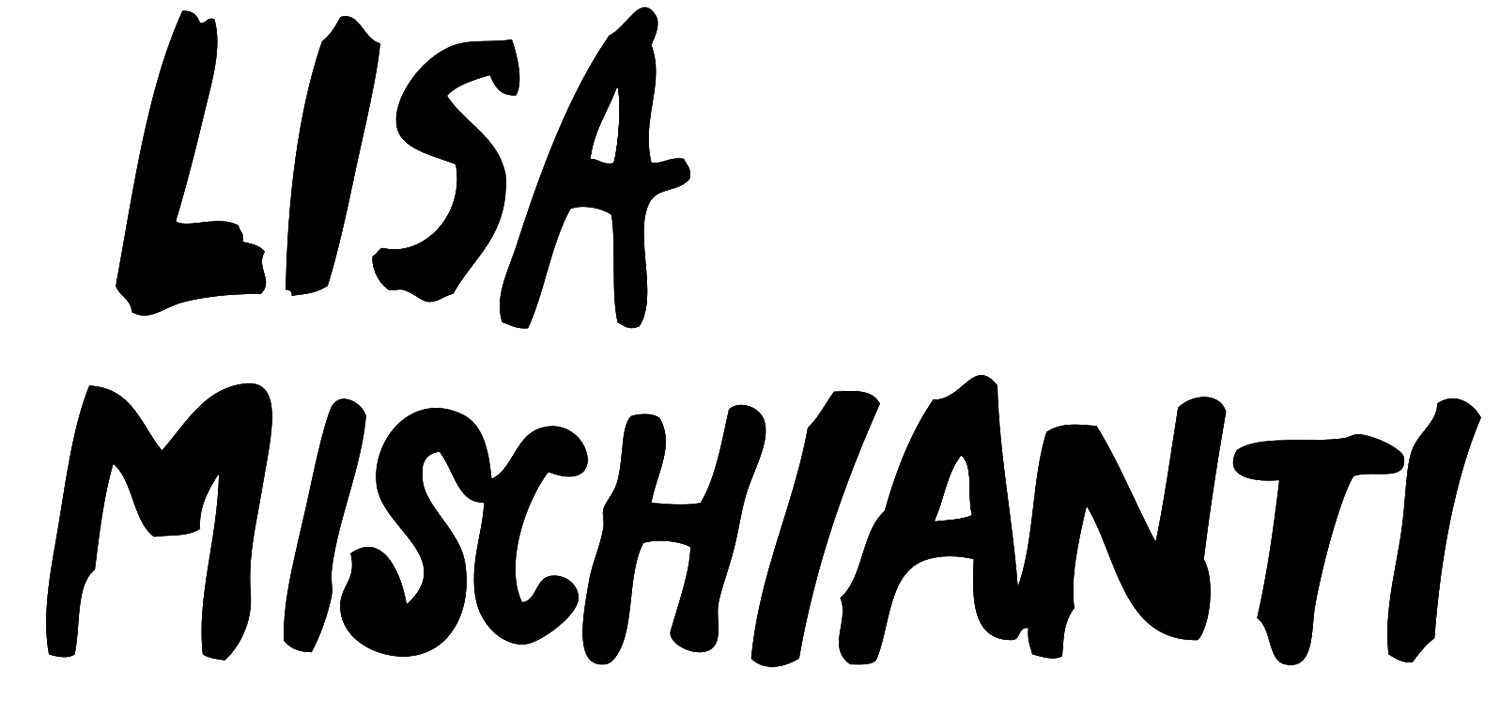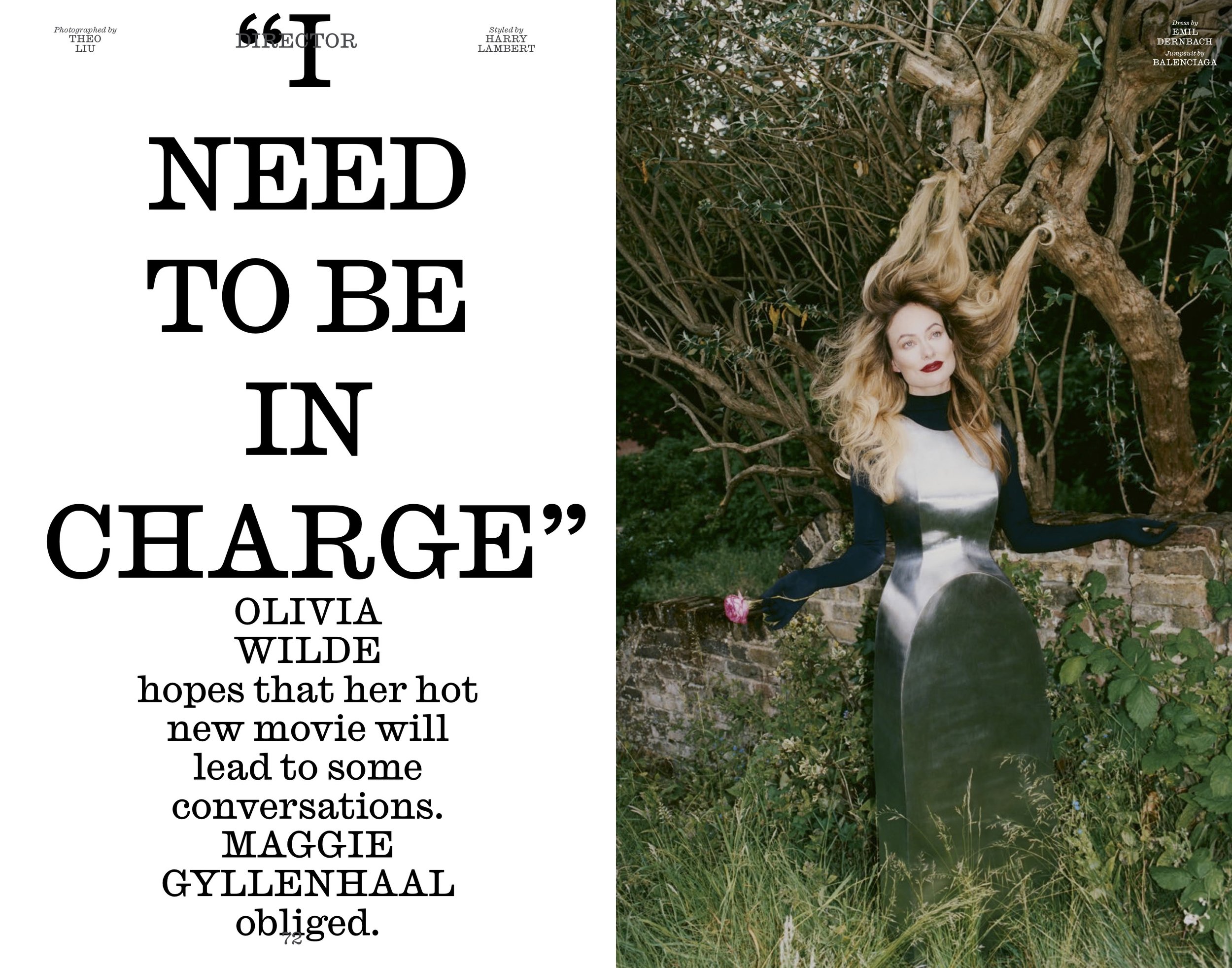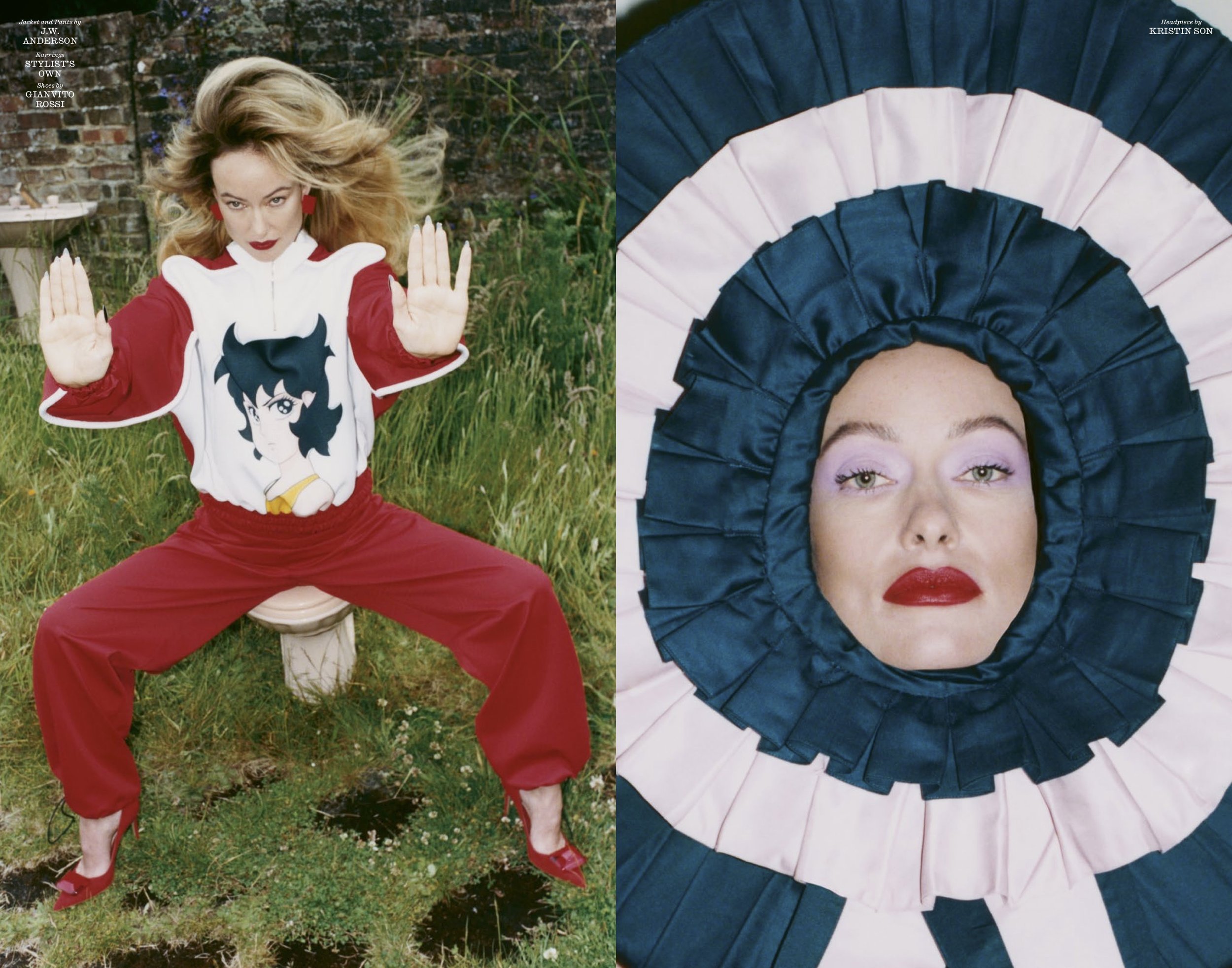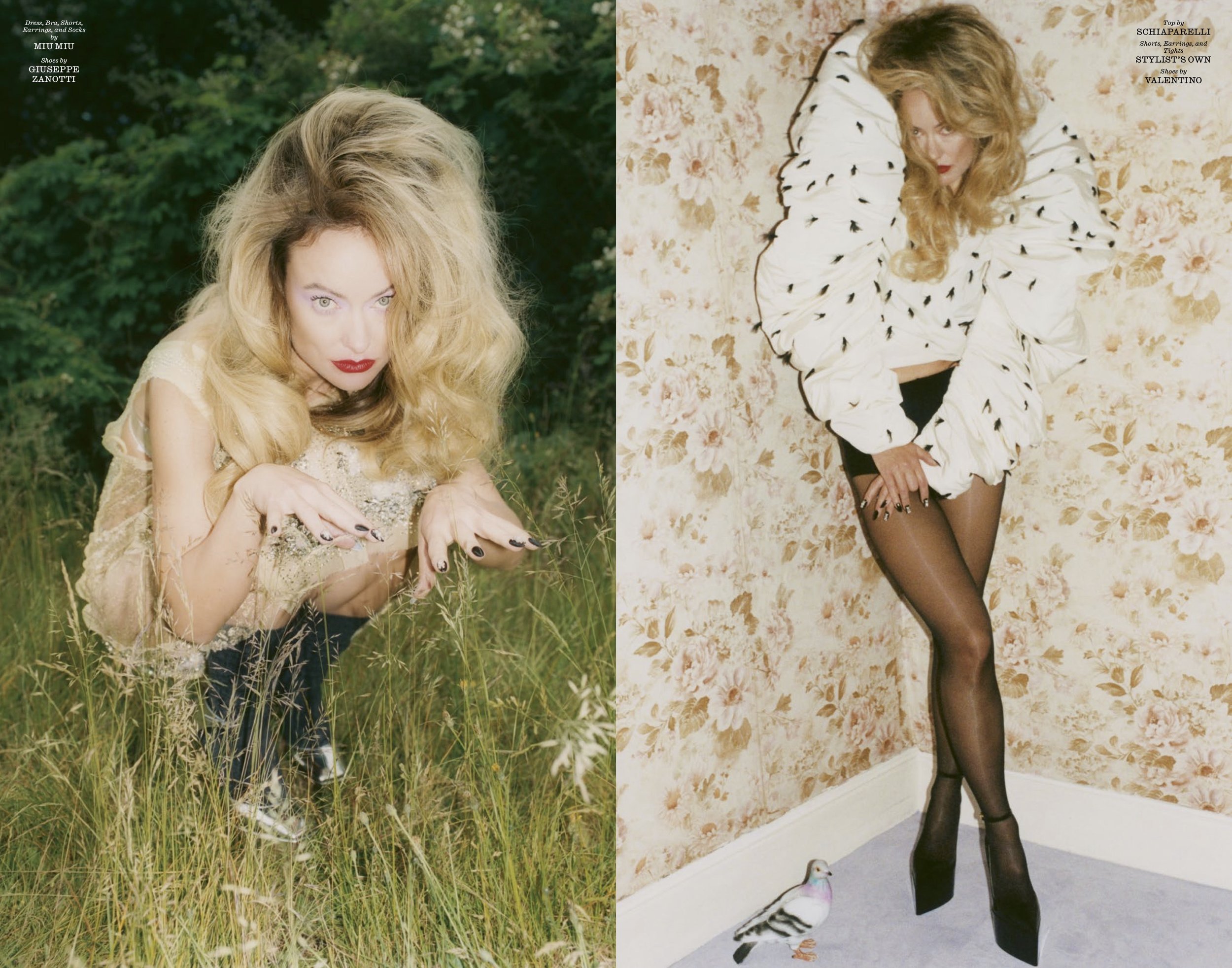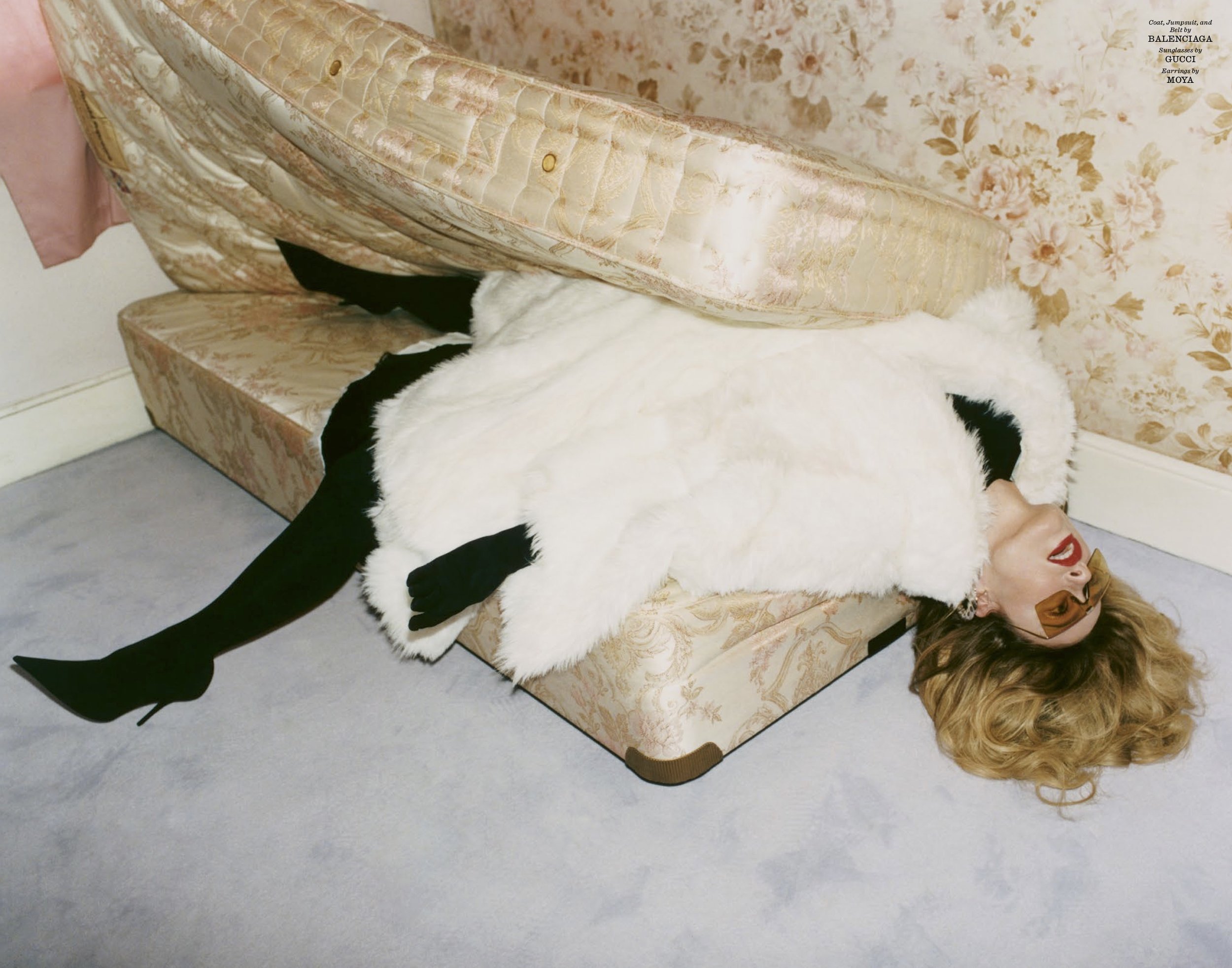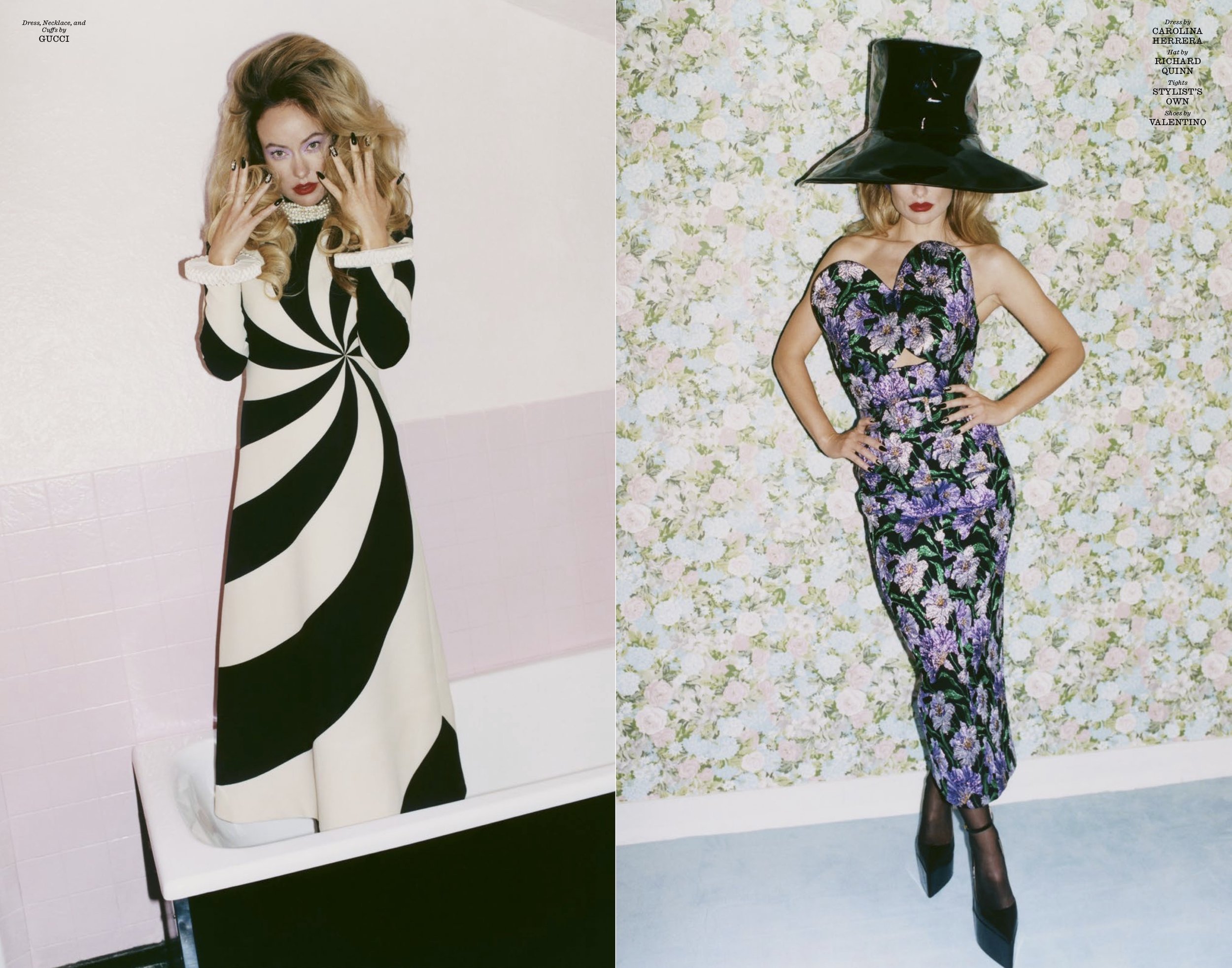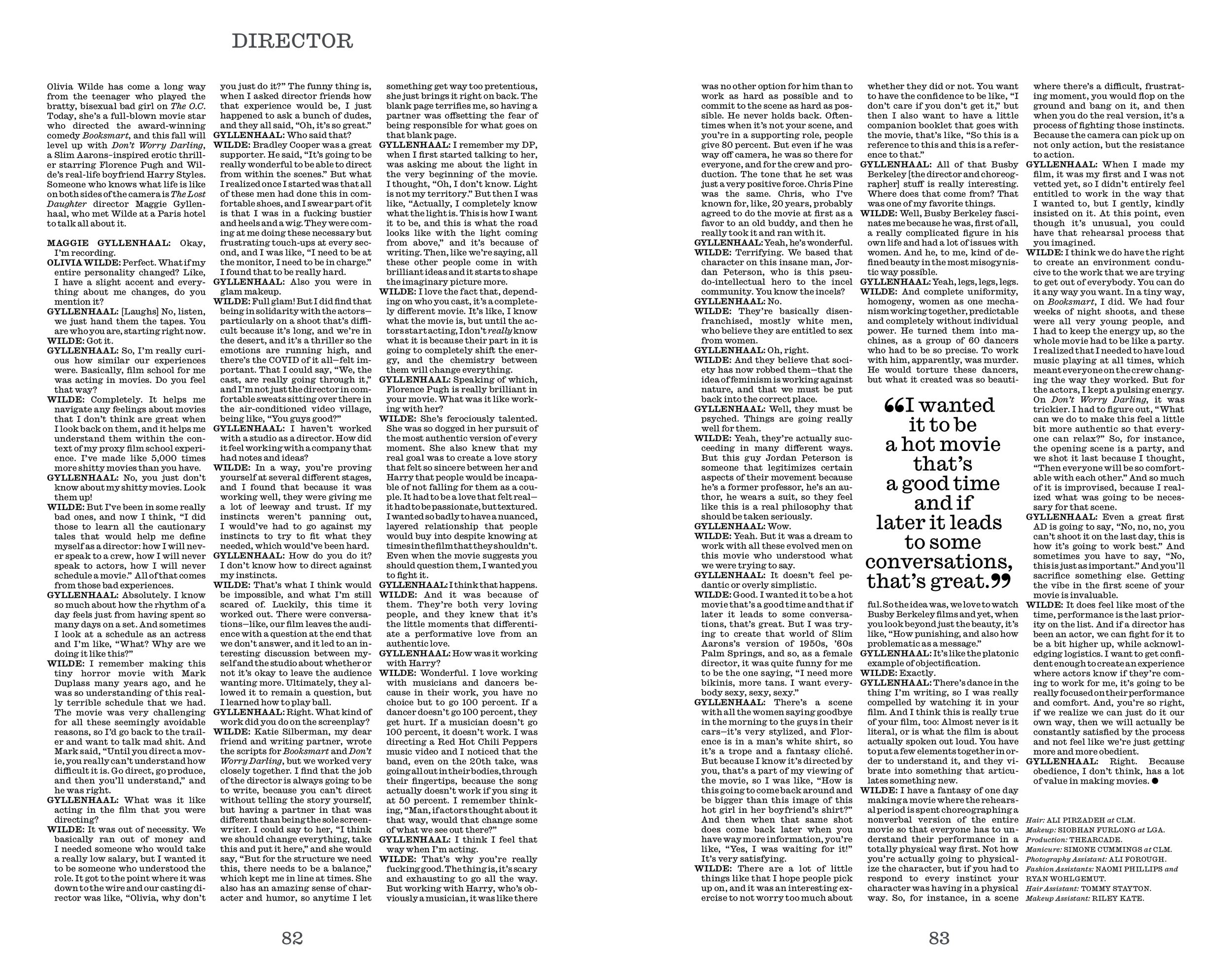Olivia Wilde has come a long way from the teenager who played the bratty, bisexual bad girl on The O.C. Today, she’s a full-blown movie star who directed the award-winning comedy Booksmart, and this fall will level up with Don’t Worry Darling, a Slim Aarons–inspired erotic thriller starring Florence Pugh and Wilde’s real-life boyfriend Harry Styles. Someone who knows what life is like on both sides of the camera is The Lost Daughter director Maggie Gyllenhaal, who met Wilde at a Paris hotel to talk all about it.
MAGGIE GYLLENHAAL: Okay, I’m recording.
OLIVIA WILDE: Perfect. What if my entire personality changed? Like, I have a slight accent and everything about me changes, do you mention it?
GYLLENHAAL: [Laughs] No, listen, we just hand them the tapes. You are who you are, starting right now.
WILDE: Got it.
GYLLENHAAL: So, I’m really curious how similar our experiences were. Basically, film school for me was acting in movies. Do you feel that way?
WILDE: Completely. It helps me navigate any feelings about movies that I don’t think are great when I look back on them, and it helps me understand them within the context of my proxy film school experience. I’ve made like 5,000 times more shitty movies than you have.
GYLLENHAAL: No, you just don’t know about my shitty movies. Look them up!
WILDE: But I’ve been in some really bad ones, and now I think, “I did those to learn all the cautionary tales that would help me define myself as a director: how I will never speak to a crew, how I will never speak to actors, how I will never schedule a movie.” All of that comes from those bad experiences.
GYLLENHAAL: Absolutely. I know so much about how the rhythm of a day feels just from having spent so many days on a set. And sometimes I look at a schedule as an actress and I’m like, “What? Why are we doing it like this?”
WILDE: I remember making this tiny horror movie with Mark Duplass many years ago, and he was so understanding of this really terrible schedule that we had. The movie was very challenging for all these seemingly avoidable reasons, so I’d go back to the trailer and want to talk mad shit. And Mark said, “Until you direct a movie, you really can’t understand how difficult it is. Go direct, go produce, and then you’ll understand,” and he was right.
GYLLENHAAL: What was it like acting in the film that you were directing?
WILDE: It was out of necessity. We basically ran out of money and I needed someone who would take a really low salary, but I wanted it to be someone who understood the role. It got to the point where it was down to the wire and our casting director was like, “Olivia, why don’t you just do it?” The funny thing is, when I asked director friends how that experience would be, I just happened to ask a bunch of dudes, and they all said, “Oh, it’s so great.”
GYLLENHAAL: Who said that?
WILDE: Bradley Cooper was a great supporter. He said, “It’s going to be really wonderful to be able to direct from within the scenes.” But what I realized once I started was that all of these men had done this in comfortable shoes, and I swear part of it is that I was in a fucking bustier and heels and a wig. They were coming at me doing these necessary but frustrating touch-ups at every second, and I was like, “I need to be at the monitor, I need to be in charge.” I found that to be really hard.
GYLLENHAAL: Also you were in glam makeup.
WILDE: Full glam! But I did find that being in solidarity with the actors— particularly on a shoot that’s difficult because it’s long, and we’re in the desert, and it’s a thriller so the emotions are running high, and there’s the COVID of it all—felt important. That I could say, “We, the cast, are really going through it,” and I’m not just the director in comfortable sweats sitting over there in the air-conditioned video village, being like, “You guys good?”
GYLLENHAAL: I haven’t worked with a studio as a director. How did it feel working with a company that had notes and ideas?
WILDE: In a way, you’re proving yourself at several different stages, and I found that because it was working well, they were giving me a lot of leeway and trust. If my instincts weren’t panning out, I would’ve had to go against my instincts to try to fit what they needed, which would’ve been hard.
GYLLENHAAL: How do you do it? I don’t know how to direct against my instincts.
WILDE: That’s what I think would be impossible, and what I’m still scared of. Luckily, this time it worked out. There were conversations— like, our film leaves the audience with a question at the end that we don’t answer, and it led to an interesting discussion between myself and the studio about whether or not it’s okay to leave the audience wanting more. Ultimately, they allowed it to remain a question, but I learned how to play ball.
GYLLENHAAL: Right. What kind of work did you do on the screenplay?
WILDE: Katie Silberman, my dear friend and writing partner, wrote the scripts for Booksmart and Don’t Worry Darling, but we worked very closely together. I find that the job of the director is always going to be to write, because you can’t direct without telling the story yourself, but having a partner in that was different than being the sole screenwriter. I could say to her, “I think we should change everything, take this and put it here,” and she would say, “But for the structure we need this, there needs to be a balance,” which kept me in line at times. She also has an amazing sense of character and humor, so anytime I let something get way too pretentious, she just brings it right on back. The blank page terrifies me, so having a partner was offsetting the fear of being responsible for what goes on that blank page.
GYLLENHAAL: I remember my DP, when I first started talking to her, was asking me about the light in the very beginning of the movie. I thought, “Oh, I don’t know. Light is not my territory.” But then I was like, “Actually, I completely know what the light is. This is how I want it to be, and this is what the road looks like with the light coming from above,” and it’s because of writing. Then, like we’re saying, all these other people come in with brilliant ideas and it starts to shape the imaginary picture more.
WILDE: I love the fact that, depending on who you cast, it’s a completely different movie. It’s like, I know what the movie is, but until the actors start acting, I don’t really know what it is because their part in it is going to completely shift the energy, and the chemistry between them will change everything.
GYLLENHAAL: Speaking of which, Florence Pugh is really brilliant in your movie. What was it like working with her?
WILDE: She’s ferociously talented. She was so dogged in her pursuit of the most authentic version of every moment. She also knew that my real goal was to create a love story that felt so sincere between her and Harry that people would be incapable of not falling for them as a couple. It had to be a love that felt real—it had to be passionate, but textured. I wanted so badly to have a nuanced, layered relationship that people would buy into despite knowing at times in the film that they shouldn’t. Even when the movie suggests you should question them, I wanted you to fight it.
GYLLENHAAL: I think that happens.
WILDE: And it was because of them. They’re both very loving people, and they knew that it’s the little moments that differentiate a performative love from an authentic love.
GYLLENHAAL: How was it working with Harry?
WILDE: Wonderful. I love working with musicians and dancers because in their work, you have no choice but to go 100 percent. If a dancer doesn’t go 100 percent, they get hurt. If a musician doesn’t go 100 percent, it doesn’t work. I was directing a Red Hot Chili Peppers music video and I noticed that the band, even on the 20th take, was going all out in their bodies, through their fingertips, because the song actually doesn’t work if you sing it at 50 percent. I remember thinking, “Man, if actors thought about it that way, would that change some of what we see out there?”
GYLLENHAAL: I think I feel that way when I’m acting.
WILDE: That’s why you’re really fucking good. The thing is, it’s scary and exhausting to go all the way. But working with Harry, who’s obviously a musician, it was like there was no other option for him than to work as hard as possible and to commit to the scene as hard as possible. He never holds back. Oftentimes when it’s not your scene, and you’re in a supporting role, people give 80 percent. But even if he was way off camera, he was so there for everyone, and for the crew and production. The tone that he set was just a very positive force. Chris Pine was the same. Chris, who I’ve known for, like, 20 years, probably agreed to do the movie at first as a favor to an old buddy, and then he really took it and ran with it.
GYLLENHAAL: Yeah, he’s wonderful.
WILDE: Terrifying. We based that character on this insane man, Jordan Peterson, who is this pseudo-intellectual hero to the incel community. You know the incels?
GYLLENHAAL: No.
WILDE: They’re basically disenfranchised, mostly white men, who believe they are entitled to sex from women.
GYLLENHAAL: Oh, right.
WILDE: And they believe that society has now robbed them—that the idea of feminism is working against nature, and that we must be put back into the correct place.
GYLLENHAAL: Well, they must be psyched. Things are going really well for them.
WILDE: Yeah, they’re actually succeeding in many different ways. But this guy Jordan Peterson is someone that legitimizes certain aspects of their movement because he’s a former professor, he’s an author, he wears a suit, so they feel like this is a real philosophy that should be taken seriously.
GYLLENHAAL: Wow.
WILDE: Yeah. But it was a dream to work with all these evolved men on this movie who understood what we were trying to say.
GYLLENHAAL: It doesn’t feel pedantic or overly simplistic.
WILDE: Good. I wanted it to be a hot movie that’s a good time and that if later it leads to some conversations, that’s great. But I was trying to create that world of Slim Aarons’s version of 1950s, ’60s Palm Springs, and so, as a female director, it was quite funny for me to be the one saying, “I need more bikinis, more tans. I want everybody sexy, sexy, sexy.”
GYLLENHAAL: There’s a scene with all the women saying goodbye in the morning to the guys in their cars—it’s very stylized, and Florence is in a man’s white shirt, so it’s a trope and a fantasy cliché. But because I know it’s directed by you, that’s a part of my viewing of the movie, so I was like, “How is this going to come back around and be bigger than this image of this hot girl in her boyfriend’s shirt?” And then when that same shot does come back later when you have way more information, you’re like, “Yes, I was waiting for it!” It’s very satisfying.
WILDE: There are a lot of little things like that I hope people pick up on, and it was an interesting exercise to not worry too much about whether they did or not. You want to have the confidence to be like, “I don’t care if you don’t get it,” but then I also want to have a little companion booklet that goes with the movie, that’s like, “So this is a reference to this and this is a reference to that.”
GYLLENHAAL: All of that Busby Berkeley [the director and choreographer] stuff is really interesting. Where does that come from? That was one of my favorite things.
WILDE: Well, Busby Berkeley fascinates me because he was, first of all, a really complicated figure in his own life and had a lot of issues with women. And he, to me, kind of defined beauty in the most misogynistic way possible.
GYLLENHAAL: Yeah, legs, legs, legs.
WILDE: And complete uniformity, homogeny, women as one mechanism working together, predictable and completely without individual power. He turned them into machines, as a group of 60 dancers who had to be so precise. To work with him, apparently, was murder. He would torture these dancers, but what it created was so beautiful. So the idea was, we love to watch Busby Berkeley films and yet, when you look beyond just the beauty, it’s like, “How punishing, and also how problematic as a message.”
GYLLENHAAL: It’s like the platonic example of objectification.
WILDE: Exactly.
GYLLENHAAL: There’s dance in the thing I’m writing, so I was really compelled by watching it in your film. And I think this is really true of your film, too: Almost never is it literal, or is what the film is about actually spoken out loud. You have to put a few elements together in order to understand it, and they vibrate into something that articulates something new.
WILDE: I have a fantasy of one day making a movie where the rehearsal period is spent choreographing a nonverbal version of the entire movie so that everyone has to understand their performance in a totally physical way first. Not how you’re actually going to physicalize the character, but if you had to respond to every instinct your character was having in a physical way. So, for instance, in a scene where there’s a difficult, frustrating moment, you would flop on the ground and bang on it, and then when you do the real version, it’s a process of fighting those instincts. Because the camera can pick up on not only action, but the resistance to action.
GYLLENHAAL: When I made my film, it was my first and I was not vetted yet, so I didn’t entirely feel entitled to work in the way that I wanted to, but I gently, kindly insisted on it. At this point, even though it’s unusual, you could have that rehearsal process that you imagined.
WILDE: I think we do have the right to create an environment conducive to the work that we are trying to get out of everybody. You can do it any way you want. In a tiny way, on Booksmart, I did. We had four weeks of night shoots, and these were all very young people, and I had to keep the energy up, so the whole movie had to be like a party. I realized that I needed to have loud music playing at all times, which meant everyone on the crew changing the way they worked. But for the actors, I kept a pulsing energy. On Don’t Worry Darling, it was trickier. I had to figure out, “What can we do to make this feel a little bit more authentic so that everyone can relax?” So, for instance, the opening scene is a party, and we shot it last because I thought, “Then everyone will be so comfortable with each other.” And so much of it is improvised, because I realized what was going to be necessary for that scene.
GYLLENHAAL: Even a great first AD is going to say, “No, no, no, you can’t shoot it on the last day, this is how it’s going to work best.” And sometimes you have to say, “No, this is just as important.” And you’ll sacrifice something else. Getting the vibe in the first scene of your movie is invaluable.
WILDE: It does feel like most of the time, performance is the last priority on the list. And if a director has been an actor, we can fight for it to be a bit higher up, while acknowledging logistics. I want to get confident enough to create an experience where actors know if they’re coming to work for me, it’s going to be really focused on their performance and comfort. And, you’re so right, if we realize we can just do it our own way, then we will actually be constantly satisfied by the process and not feel like we’re just getting more and more obedient.
GYLLENHAAL: Right. Because obedience, I don’t think, has a lot of value in making movies.
